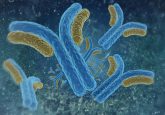Label-free sensor method for detection of bladder cancer
Light-based sensor detects cancer within minutes using a novel DNA methylation detection method.
Engineers at the A*STAR Institute of Microelectronics (Science Park II, Singapore) have recently developed and tested sensor technology capable of measuring the chemical signature of bladder cancer. The light-based sensor could be incorporated into a lab-on-a-chip device and potentially process fluid samples with a turnaround time of 5 minutes.
The technology relies on the detection of DNA methylation, as tumor suppressing genes can be deactivated by the attachment of a methyl group to a specific DNA sequence in their promoter region. The addition of a methyl group then prevents the cell from being able to control its own proliferation, as the gene can no longer be used as a template for protein synthesis.
Although there are several established chemical methods for the detection of DNA methylation, they are expensive, time-consuming and rely on laboratory expertise. The research, led by Yong Shin, focuses on direct, physical methods of detection. The team tested the capacity of silicon micro-ring resonators to distinguish between methylated and unmethylated forms of the gene known to trigger cancer. A PCR-amplified solution of the gene was passed over a silicon chip with separate DNA probes attached. Within 5 minutes the resonators had clearly distinguished between the two forms.
According to Shin, “Our sensors could be widely used for DNA methylation detection specifically and rapidly in the field. Among the techniques we have published is a novel technique that can be integrated with the methylation-specific sensor to amplify the methylated DNA from low amounts of DNA,” he explains. “So, we are now trying to make a single microfluidic-based chip system that integrates several techniques, such as DNA extraction, conversion, amplification and detection”.
Source: Shin Y, Perera A, Kee JS et al. Label-free methylation specific sensor based on silicon microring resonators for detection and quantification of DNA methylation biomarkers in bladder cancer Sens. Actuators B Chem. 177, 404–411 (2013); Microelectronics: automating cancer detection.




